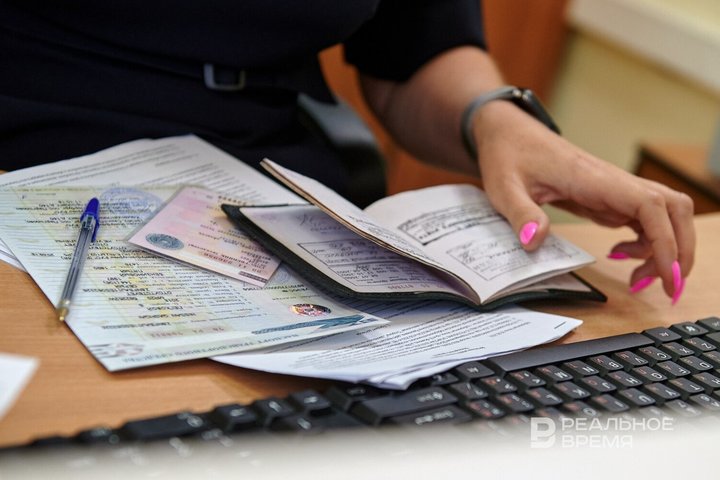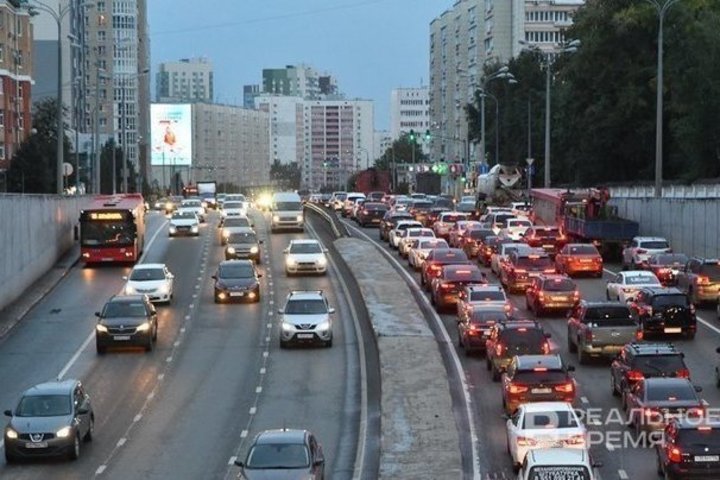‘With one foot out of the market’: one in two legal taxi drivers quits
Why the federal law on taxi works against market players, passengers and the budget

In a month, on 1 November, the transition period of the federal law on taxi ends for drivers in the industry, who will have to fulfil a number of new requirements with a total of almost 300,000 rubles. The initiative has already led to the outflow of a million legal taxi drivers, prices for trips have almost doubled, and the budget has lost about 80 billion rubles in taxes, the State Duma concluded. Legislators are again going to amend the law: they are offered to limit the commission of Yandex Taxi aggregator to 20%, simplify medical examinations and technical inspections and ease the overall financial burden on market participants. Meanwhile, taxis in Tatarstan, apparently, have become illegal — only 2% of the self-employed have registered as drivers.
Beware, compulsory driver insurance!
Since 1 September, new requirements have been introduced for taxi drivers in the country, which force them to fork out a lot of money. According to the Federal Law On Taxi, regardless of their legal status (Author’s note: self-employed, individual entrepreneur), they are required to obtain a permit to carry out activities for the transportation of passengers and luggage to provide taxi services, and the authorised body (in this case, the Ministry of Transport of the Republic of Tatarstan) is required to include data on each of them into Taxi federal electronic database. However, this is not enough to legally continue working in the market.
In addition to this, the entrepreneur is required to have a compulsory driver insurance and notify the regional Ministry of Transport about it. This is a new insurance that provides mandatory insurance of the carrier's civil liability for causing harm to the life, health and property of passengers. A taxi driver is required to issue it in addition to the car insurance, which a driver buys with an increased risk coefficient.
Formally, its cost is small — 3,500 rubles. The catch is that the entrepreneur must send the notification electronically, and for this, it is necessary to purchase an electronic digital signature (token). In Moscow, a whole field of IT services has blossomed here: the token is sold to drivers for 3,000-5,000 rubles, plus 1,500-2,000 for registration, President of the Association for Assistance to the Development of the Taxi Industry Mikhail Mikhailov told Realnoe Vremya. The transition period for registering the driver insurance will last 2 months — until 1 November 2024.

Why Taxi is closed to the public
How the agreement registration process is going in Tatarstan remains a mystery. The republican Ministry of Transport and Road Facilities did not respond to Realnoe Vremya's request. When talking on the phone, Vice Minister of Transport and Road of the Republic of Tatarstan Ayrat Sadykov who oversees taxi operations simply hung up.
Reliable data on market players in the regions is found in the database of the electronic platform Taxi administered by the Situation and Information Centre of the Ministry of Transport of Russia. The agency launched the platform a year ago to legalise the market. The right to fill the regional page of Tatarstan with information on the number of registered taxi cars, self-employed drivers, and individual entrepreneurs is vested in the Ministry of Transport of the Republic of Tatarstan. Here you can see the dynamics of agreement registration online, and data uploading takes no more than 5 minutes.
However, the platform administrator refused to disclose data to the media without an order from above: “The Situation and Information Centre of the Ministry of Transport of Russia can provide it only on condition of a dedicated order from the Ministry of Transport of Russia based on an official request sent to them. It is also possible to contact the authority authorised to carry out functions on organising the transportation of passengers and luggage by passenger taxis in the Republic of Tatarstan represented by the Ministry of Transport and Road of the Republic of Tatarstan,” the centre reported.
It was partly possible to obtain approximate data on the number of people employed in the taxi industry from the Ministry of Economy of the Republic of Tatarstan. According to this data, about 7,300 self-employed people work in the transport industry in Tatarstan, or 2% of the total number of registered people. But this also includes truck and bus drivers, so the government agency cannot single out the exact number of legal taxi drivers. Meanwhile, 16.5% of the self-employed in the country are registered as drivers, the press service of the Federal Tax Service of the Russian Federation reported earlier.

It is clear that Tatarstan entrepreneurs are in no hurry to whitewash themselves, although they pay taxes as self-employed but they hide their driver profile. It is not worth counting on the fact that several thousands of “illegal” drivers will rush to get permits and buy the agreements from 1 September. Most likely, they will continue to operate in the shadow market. If the carrier does not have a compulsory third party insurance, the permit to operate will first be suspended for 30 days, and after another 30 days, it will be completely cancelled. And the entrepreneur will be left with no choice. According to Mikhail Mikhailov, President of the Association for Assistance to the Development of the Taxi Industry, the new burden in the form of insurance will increase the outflow of legal drivers from the taxi industry.

Why a million legal taxi drivers “disappeared”
A number of State Duma deputies criticised Federal Law No. 580 On Taxis. “Since its adoption, a million legal taxi drivers have ‘disappeared’, prices for trips have almost doubled, passenger safety has decreased, the budget has lost about 80 billion rubles from lost taxes,” deputy Yaroslav Nilov wrote in his Telegram channel. “In one of the regions, I tried to call Yandex Taxi — it was impossible. And an illegal car arrived in 10 minutes.” The parliamentarian called for a sober assessment of the imbalances in the regulation of the taxi market.

The stated figure of a million lost legal taxi drivers does not match the official data of the Russian Ministry of Transport. Currently, 600,000 taxi cars, about 30,000 self-employed people and almost 100,000 carriers are registered in the Taxi platform.
“True statistics on the number of self-employed taxi drivers will be available when they issue permits and the mandatory insurances by 1 November. But they do not want to deal with these encumbrances,” President of the All-Russian Association of the Self-Employed Workers of Russia public organisation Igor Zhmakin, told Realnoe Vremya.
According to his estimates, 650,000 self-employed people work in the taxi market, but only 21% of them have obtained permits, that is, about 100,000 work legally.
“I don't know where they got the figure of 2.5 million drivers. We have never had such a number of legal drivers,” Mikhail Mikhailov agreed. He is inclined to trust the official figure of 100,000 carriers, from this small cohort every second one leaves. “Only individual entrepreneurs and self-employed individuals with valid permits remain. From 1 November, when the transition period for the mandatory insurances ends, the second wave of driver outflow will begin,” he predicts.
Remove daily medical examination and pre-trip technical inspection
In order to stop the outflow of legal drivers, public associations propose to limit the commission of the order service — a taxi aggregator. According to Mikhailov, in Moscow it reaches 40%. “When deputies are outraged by the fee of 1,500 rubles for a 10-minute trip, they give 600 rubles to the aggregator for transferring the order. The driver gets 55% from each order,” he said. According to him, the association came up with an initiative to limit the commission to 20%. Another proposal is to prohibit the aggregator from independently blocking the driver in the order system due to negative reviews from inadequate clients. Igor Zhmakin proposed removing economic barriers.
According to him, Federal Law 580 On Taxi offers obviously impossible and unnecessary requirements for self-employed drivers:
— daily medical and technical inspections;
— having an mandatory driver insurance policy at the rate of a passenger taxi;
— daily registration of waybills;
— compliance with the colour of taxi cars;
— permission to work only in those settlements where the aggregator operates.
“It seemed that there was nothing complicated in undergoing a daily medical examination and technical inspection. But in reality, drivers are faced with the fact that there are no medical stations. There are five in Moscow, and 1-2 in the regions. We will not even mention the technical inspection — in small towns there are physically no stations for pre-trip technical inspection,” the expert said.
Why is this position critical? “If an accident occurs with an injured passenger, the insurance company will pay him the damage. But if the driver has not passed the medical and technical inspection, the insurance company will start collecting this amount from the driver. The maximum amount can reach 2.5 million rubles. The question is why take the risk?” he explains the concerns of illegal drivers.
Doctors see a way out in the taxi company being responsible for the driver's health and the condition of the car. Moreover, self-employed people must be assigned to them. “Now a taxi driver comes, rents a car for 3-5-7 days, they immediately give him stamped waybills, and he does not undergo daily pre-trip medical or technical inspections,” doctor and owner of Before Trip medical check-up company Sergey Vinogradov told Realnoe Vremya.

At the end of the working day, they returned back to the taxi company, which was responsible for the serviceability of the vehicle and the health of the driver before going on a trip. If we return to this practice, then everything will be clear and understandable. There are currently two or three taxi fleets on the entire market, and this puts a huge strain on logistics. They simply cannot service such a huge number of cars. In my opinion, it would be reasonable if many taxi fleets opened. In different formats: from digital to fixed. And they would all be united by a single roaming for transmitting information, he believes.
According to Vinogradov, a driver can pick up a car at any of these parks and then leave it wherever is convenient for him. Such logistics would make life much easier for everyone: it would increase road safety and reduce the cost of travel for the passenger. “Everyone wants not only to keep the same earnings, but also to increase them. And the passenger suffers. He has to pay more and more. If earlier a trip could cost, say, 150 rubles, now it costs 350-400 rubles on the same route. The costs are shifted to the passenger, and the driver does not bear professional responsibility, does not pay anyone anything, and in the event of an emergency it may turn out that there will be no one to ask,” the expert reasons.
80% work as taxi drivers for extra money
The obligation to repaint the car in white and yellow colours still irritates market players. Among all the encumbrances listed, this is the most expensive. According to Zhmakin, re-gluing the body will cost 200,000 rubles, and together with other requirements, the costs increase to 250-300,000 rubles. “Why should the self-employed drivers repaint their cars, undergo a medical examination if their work is already regulated by the general traffic rules,” he is indignant.

Taxi drivers are not going to leave the market — they will still earn extra money. But they will get out of the control of aggregators. “Currently, tens of thousands of passengers negotiate with drivers via messengers. I'm afraid we will return to the 90s when trips were dangerous. It is unclear who got into the car, where they went,” he points out. “Of course, aggregators have destroyed crime in taxis, but they allowed themselves to take more from the driver than is permissible.”
What amendments will be made to the federal law on taxis will be known at the end of this year. Deputies plan to rewrite Article 5, which regulates the requirements for obtaining a permit to carry out taxi activities, public activists promise.